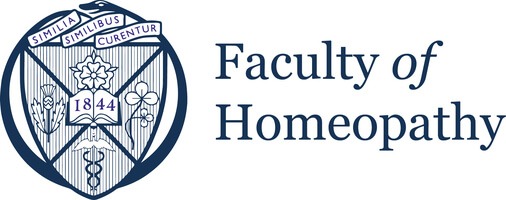
Living with cancer – or supporting someone who is – is demanding on every level. Many of my patients tell me they feel as if their bodies are “running on empty”: tired, depleted, struggling to bounce back from treatments such as surgery, chemotherapy or radiotherapy.
At the Integrated Medicine Clinic in London, I focus on holistic, evidence-informed cancer support. That includes looking carefully at vitamin and micronutrient levels and how they may influence energy, immunity, bone health, and recovery – always alongside, and never instead of, standard oncology treatments.
In this article I want to explain, in plain language, why vitamin levels matter in cancer care, what the scientific evidence really says, and how I approach testing and correcting deficiencies safely and thoughtfully.
When I talk about “vitamin levels” or “micronutrient status”, I mean:
Vitamins such as D, B12, folate, C and the B-complex act as tiny biochemical “spark plugs”: they help your cells make energy, repair DNA, support immunity and maintain healthy blood, nerves and bones. Clinical nutrition guidelines stress that, in people with cancer, malnutrition and micronutrient imbalance are common and linked to poorer outcomes, more side effects and reduced quality of life.
Cancer itself, and its treatments, can affect how you eat, absorb and use nutrients. Research shows:
Vitamin deficiencies are very common in people with cancer. Studies of patients receiving chemotherapy report frequent deficiencies in vitamins D, B2, C and A, among others. archivesofmedicalscience.com+1
A recent large analysis found high rates of vitamin D, B1, folate and vitamin C deficiency in cancer patients compared with healthy controls. BioMed Central
Vitamin D deficiency is particularly prevalent; depending on the study and cancer type, 14–90% of patients have low levels, especially during chemotherapy. PMC+2ASCO Publications+2
These imbalances may:
Worsen fatigue, muscle weakness and mood (vitamin D, B group)
Contribute to anaemia (B12, folate)
Affect nerve function, increasing risk of neuropathy (B1, B6, B12)
Impair immune function and wound healing (vitamins C, A, D, B group)
Intensify treatment side effects and slow recovery
At the same time, it is important to be very clear: having perfect vitamin levels does not cure cancer, and the evidence that supplements improve survival is mixed and nuanced. Some trials suggest a modest reduction in cancer mortality with vitamin D supplementation, while others show no statistically significant benefit.
My goal as an integrative doctor is therefore not to “treat the cancer with vitamins”, but to support your whole body so you can tolerate treatment better, maintain strength and improve quality of life – while following recognised clinical nutrition guidelines such as ESPEN and working closely with your oncology tea

Cancer patients may develop deficiencies because of:
Reduced intake – poor appetite, nausea, taste changes
Malabsorption – surgery to the stomach/bowel, gut inflammation
Increased needs – rapid cell turnover, healing after surgery
Treatment effects – chemotherapy-induced vomiting and diarrhoea, steroid use, certain targeted therapies
We often see:
Vitamin D deficiency (affecting bones, muscles, immune regulation)
B12 and folate deficiency (anaemia, neuropathy, cognitive changes)
B-complex deficiencies (B1, B2, B6) affecting energy, nerves and metabolism
Low vitamin C in people with poor dietary intake or high oxidative stress
On the other side, I frequently meet patients who are taking multiple high-dose supplements simultaneously. This can be problematic because:
Some vitamins (A, D, E, K) are fat-soluble and can accumulate, potentially causing toxicity.
High-dose antioxidant supplements (such as vitamins C, A and E, selenium, coenzyme Q10) might interfere with how some chemotherapy and radiotherapy treatments work, although the evidence is not definitive.
Large meta-analyses in the general population show that routine vitamin and mineral supplementation offers little or no benefit for preventing cancer or cardiovascular disease.
Cancer Research UK and Macmillan Cancer Support both advise patients not to start high-dose supplements during active cancer treatment without discussing it with their oncology team, because of possible drug–nutrient interactions.
Different cancer treatments may predispose to specific deficiencies:
Chemotherapy can worsen deficiencies of B vitamins, vitamin D and others.
Certain chemotherapies interact with folate metabolism, so folate status must be carefully monitored and not “topped up” casually.
Gastrointestinal surgery (stomach, small bowel, pancreas) can impair absorption of B12, fat-soluble vitamins and others, sometimes for life.
This is why I always emphasise: vitamin planning in cancer care must be individualised and supervised, not generic.
Vitamin D is involved in bone health, muscle function, immune regulation and potentially tumour biology. Deficiency is very common among cancer patients. Observational studies link low vitamin D levels with worse outcomes in several cancers, including colorectal cancer.
Meta-analyses of supplementation suggest a possible modest reduction in cancer mortality, but results are not entirely consistent and not all trials show benefit.
In my practice, I usually:
Check 25-hydroxyvitamin D levels with a blood test.
Correct clear deficiency with guideline-based doses of vitamin D, taking into account kidney function, medications and risk factors.
Re-check levels rather than using indefinite high-dose supplements.
Vitamin B12 and folate are critical for red blood cell production and DNA synthesis. Abnormal B12 status – both deficiency and sometimes excess – is common in cancer patients, particularly those with digestive tract cancers or older age.
Deficiency can contribute to anaemia, neuropathy and cognitive symptoms.
Folate deficiency may also worsen chemotherapy toxicity with certain drugs.
Because both can mask or mimic each other, I prefer to test B12, folate and full blood count together before recommending supplements.
B vitamins are central to energy production and nerve health. Studies in lung and oesophageal cancer patients on chemotherapy show frequent deficiency in B1 and B2, which can worsen after treatment if not monitored.
Correcting documented deficiencies may help with:
Fatigue and low energy
Neurological symptoms
General nutritional recovery
Again, targeted, lab-guided supplementation is safer than broad, high-dose complexes.
These vitamins help protect cells from oxidative stress – but high doses during active treatment are controversial.
IV vitamin C at high doses is being studied as a complementary therapy in certain cancers; some early-stage trials suggest improved quality of life and potential synergy with chemotherapy, while others are inconclusive.
High-dose oral antioxidant supplements may reduce the effectiveness of some chemotherapy and radiotherapy regimens, because these treatments partly work by generating oxidative stress to kill cancer cells.
At the Integrated Medicine Clinic, we offer high-dose vitamin C IV therapy and IV nutrient therapy only after a full medical assessment, blood testing, and in close communication with the patient’s oncologist whenever possible. These treatments are designed to support you, not to replace standard cancer care.
A careful assessment always comes before any interventions. This typically includes:
Detailed medical history
Cancer type and stage
Current and past treatments
Other medical conditions and medications
Dietary and symptom history
Appetite, weight changes, taste disturbances, digestive symptoms
Use of over-the-counter vitamins, herbal products and IV therapies
Physical examination
Signs of anaemia, neuropathy, bruising, muscle weakness, oral and skin changes
Laboratory tests, guided by your situation:
Full blood count (FBC), kidney and liver function
25-hydroxyvitamin D
Vitamin B12 and folate
Sometimes B1 (thiamine), ferritin, zinc, magnesium, others
International nutrition guidelines emphasise routine screening for malnutrition in cancer patients, and targeted investigation of micronutrient status when risk factors are present.
I also look for “red flag” symptoms (severe weight loss, uncontrolled pain, fever, sudden neurological changes) that require urgent oncology or emergency assessment.

For each patient, we define clear goals for vitamin and nutrient support, for example:
Correct documented deficiencies to within a healthy reference range
Support energy and function so you can walk, climb stairs, and participate in daily life
Help maintain bone density and muscle mass, particularly during hormone therapy or steroid treatment
Reduce specific toxicities, such as neuropathy or mucositis, when there is evidence that a particular deficiency contributes
I often encourage patients to keep a simple symptom and energy diary. This helps us see whether nutritional changes, supplements or IV therapies are making a real difference to how you feel over time.
Integrated cancer care works best when it is truly collaborative. In many cases I liaise – with your consent – with:
Your NHS oncologist or surgeon
A dietitian experienced in oncology
Your GP and other specialists (e.g. endocrinology, cardiology)
Complementary therapists such as acupuncturists or counsellors
My role is to:
Review your medication and supplement list for interactions
Align any vitamin or IV therapies with evidence-based guidelines
Ensure safety checks (kidney function, G6PD status, etc.) before high-dose vitamin C or other IV nutrients
Provide a clear, written summary of any complementary treatments you are receiving, so your NHS team understands the full picture
Care can be delivered in our London clinic, and in some cases via telemedicine consultations for patients from across the UK.
Where possible, I like to start with food, because nutrients come packaged with fibre, phytonutrients and healthy fats:
Emphasis on colourful vegetables and fruits
Adequate protein (fish, eggs, beans, lean meat) to support repair
Whole grains, nuts and seeds where tolerated
Adequate fluids to prevent dehydration
A Mediterranean-style pattern is often a good starting point and is supported by oncology nutrition guidelines.
When blood tests show deficiency, we may use physiological doses of:
Vitamin D
B12 (oral or injection depending on absorption)
Folate (only when appropriate with your chemotherapy regimen)
B-complex vitamins
Other nutrients such as iron, zinc or magnesium if indicated
The aim is to correct deficiency, not to push levels far above the normal range.
For some patients – for example, those with poor gut absorption, severe fatigue or specific side-effect profiles – we may consider intravenous nutrient therapy, which can include vitamin C, B vitamins, magnesium and other carefully selected nutrients.
This is always:
Individually planned, based on your lab results and medical history
Delivered under medical supervision
Integrated with your conventional treatment plan
Regularly reviewed to assess benefit and adjust or stop if appropriate
It is essential to understand that IV nutrient therapy is a supportive, complementary approach, not a replacement or cure.
While every patient is unique, here are a few common scenarios I see:
Profound fatigue and bone pain in a patient on hormone therapy
→ Investigation shows vitamin D deficiency; guideline-based replacement plus gentle exercise and diet optimisation often help energy and musculoskeletal symptoms over several months.
Tingling feet and difficulty walking in a patient after bowel surgery and chemotherapy
→ Testing reveals low B12 and borderline thiamine; after B12 injections, oral B1, and careful neuropathy management, symptoms may stabilise or improve.
Poor wound healing and recurrent infections in a patient with poor dietary intake
→ A combination of dietitian input, oral supplements (including vitamin C where low) and, in some cases, IV nutrients can support healing.
In each case, the starting point is assessment and partnership with your oncology team – not self-prescribing supplements based on internet advice.
Because vitamins are “natural”, they are often perceived as automatically safe. In reality, doses, timing and interactions matter greatly, especially in cancer care.
In my clinic, safety measures include:
Consent and clear documentation for all complementary treatments
Medication and supplement interaction checks
Baseline and follow-up blood tests for key nutrients and organ function
Screening for contraindications to high-dose vitamin C (e.g. G6PD deficiency, severe kidney disease, certain iron overload conditions)
Rapid escalation pathways if a patient deteriorates – we will always advise you to contact your oncology team or emergency services if we are concerned
This approach aligns with international clinical nutrition guidance and with UK cancer charities’ recommendations to coordinate any supplement use with your main cancer team.

If you are living with cancer and wondering whether your vitamin levels are helping or hindering your recovery, you are not alone. Many of my patients feel overwhelmed by conflicting information and by shelves full of supplements promising miracles.
My advice is:
Do not start or stop any supplements without speaking to your oncology team.
If you wish to explore a more integrative approach to your care, including a thorough review of your vitamin and micronutrient status, you are welcome to contact me at the Integrated Medicine Clinic in London.
Bring any recent blood tests and a list of everything you currently take – prescribed drugs, over-the-counter vitamins, herbal products, and previous IV therapies. That gives us the best starting point for a safe, personalised plan.
As an integrative medicine doctor, my aim is to support you as a whole person – mind, body and spirit – using the best of conventional medicine and carefully chosen complementary therapies. Ensuring that your vitamin levels are balanced and appropriate is a small but important part of that journey.
Arends J et al. ESPEN guidelines on nutrition in cancer patients. Clin Nutr. 2017.
Muscaritoli M et al. ESPEN practical guideline: Clinical nutrition in cancer. Clin Nutr. 2021.
Berger MM et al. ESPEN micronutrient guideline. Clin Nutr. 2022.
Liang L et al. Determination of multiple vitamins in lung cancer patients undergoing chemotherapy. Arch Med Sci. 2020.
Zhu W et al. Micronutrient deficiency in cancer patients. BMC Med. 2025.
Fakih MG et al. Chemotherapy and severe vitamin D deficiency in colorectal cancer. J Clin Oncol. 2008.
Crew KD et al. High prevalence of vitamin D deficiency in women with breast cancer. J Clin Oncol. 2009.
Afonso ML et al. Vitamin D supplementation in cancer: systematic review. Nutrients. 2025.
Schöttker B et al. Vitamin D supplementation and cancer mortality. BMJ Open. 2021.
Cancer Research UK. Vitamins, diet supplements and cancer.
Macmillan Cancer Support. Diet and food supplements in cancer care.
Harvie M. Nutritional supplements and cancer: potential benefits and proven harms. ASCO Educ Book. 2014.
Dhakal P et al. Diet and nutritional supplementation in patients with cancer. Curr Oncol Rep. 2024.
(This article is for general educational purposes only and does not replace individual medical advice. Please discuss your specific situation with your oncology team and healthcare professionals.)

Consultant in General Internal Medicine (GMC reg. number: 7541548) and Specialist in Complementary Cancer Care
MBBS, MRCIM (Spain), MSc Homeopathy, MFHom, Master practitioner in Ericksonian Hypnotherapy and Neurolinguistic Programming, MSc in Nutrition
Integrated medicine Doctor and Holistic Medicine Practitioner



